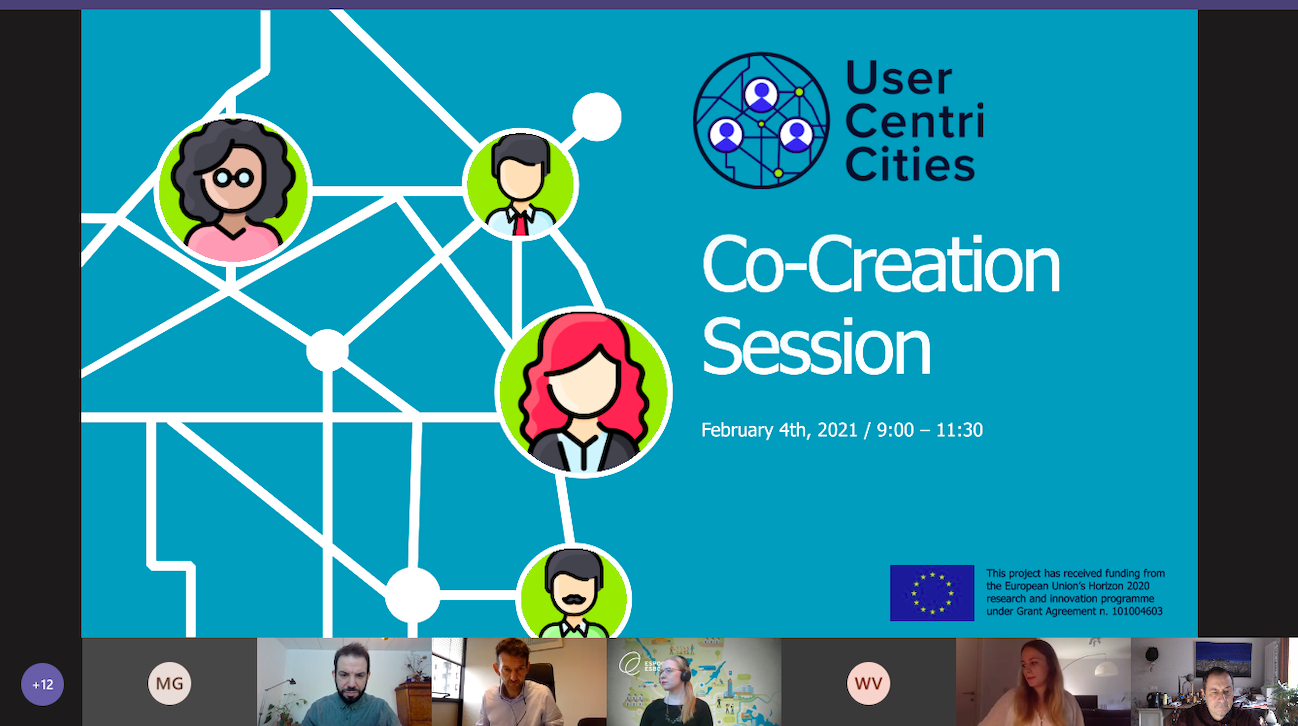
On 4 February 2021, representatives from more than ten European cities and regions joined UserCentriCities’ first co-creation session. Over the course of two and a half hours, they shared their insights on how to adapt the Tallinn Declaration’s user-centricity principles for design and delivery of digital public services to make them fit a local administration’s context.
Summary of the Session
After an introduction to the European policy context and the Tallinn Declaration by David Osimo (Director of Research at the Lisbon Council), Karl-Filip Coenegrachts (Founder and Director of Cities of People) opened the floor to a fruitful discussion.
Each of the 8 principles was detailed, examined, and commented on by the participants (representatives from cities and regions). The session was an opportunity to hear and understand the knowledge base of the cities on each principle, and what the hurdles to comply with those principles might be.
Main Take-Aways: A Lot of Commonalities and Agreements
The lively debate proved that exchange between local administrations can help tackle common challenges in delivering user-centric digital public services at the local level.
Frontrunners in user-centric services shared guidelines and some reference points to help spur on some cities that are later arrivals to user-centricity. Nevertheless, the cities [AG1] highlighted obstacles that persist despite their efforts, while examining the gaps that exist between theory and application. For instance, Tallinn, the eponymous city of the Declaration on eGovernment, mentioned the struggle of simply onboarding citizens. Espoo built on this point and underlined the importance of engaging with citizens from the very beginning “Citizen engagement is time consuming, but we found that in 2 out of 3 times, the insight at an early stage is so valuable that it is worth putting some effort.” Indeed, having user-centric services is useless if citizens do not know about them and use them.
The question of the audience and its engagement was central in the discussion but not the sole point of interest. User-centric services are not only an advantage to users but also to administrations. As a matter of fact, many cities and regions highlighted that easier, more accessible, usable and available services could lighten the burden of administrations. But to succeed in this, there is also a question of training the people from the administration themselves: how can we expect to deliver user-centric services if the delivery is provided by untrained staff?
Technical issues were also discussed, such as legacy issues that prevent some technologies being implemented if their predecessor is not compatible. Minimum interoperability mechanisms were also mentioned to allow for a wider dissemination of common technologies.
Interestingly enough, some disagreements emerged as well, such as whether cities preferred the ‘mobile first’ approach, or the ‘responsiveness’ approach. However, this was one the few – if not the only – divergence that surfaced during the session, demonstrating once again that a common approach is possible and also sought by cities and regions. Agreements were more common, and the most important ones concerned the multi-level perspective and the need to break silos between the different stakeholders and departments in administrations.
A Successful Co-Creation Session
The session attracted the interest of many cities beyond the project’s consortium: Barcelona, Glasgow, Gothenburg, Lisbon and Porto. At the end of the session, those 5 cities became associate cities and joined the 6 partners cities and regions that were already part of the consortium (Espoo, Emilia Romagna region, Milan, Murcia, Rotterdam, Tallinn).
Based on this discussion and further co-creation tools (such as a qualitative questionnaire), UserCentriCities will draft an adapted and operational version of the Tallinn Declaration according to local authorities (by April 2021).
What’s next?
UserCentriCities will continue to foster exchange between European local administrations and invites any city striving to improve its digital public services to join this community.
Eurocities